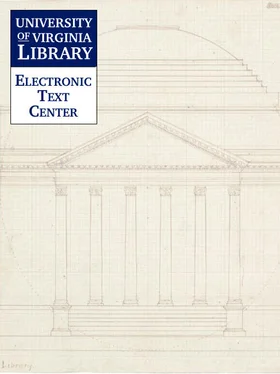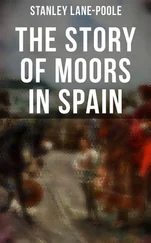Hendrik Loon - The Story of Mankind
Здесь есть возможность читать онлайн «Hendrik Loon - The Story of Mankind» весь текст электронной книги совершенно бесплатно (целиком полную версию без сокращений). В некоторых случаях можно слушать аудио, скачать через торрент в формате fb2 и присутствует краткое содержание. Год выпуска: 2000, Издательство: Electronic Text Center. University of Virginia Library., Жанр: Старинная литература, на английском языке. Описание произведения, (предисловие) а так же отзывы посетителей доступны на портале библиотеки ЛибКат.
- Название:The Story of Mankind
- Автор:
- Издательство:Electronic Text Center. University of Virginia Library.
- Жанр:
- Год:2000
- ISBN:нет данных
- Рейтинг книги:3 / 5. Голосов: 1
-
Избранное:Добавить в избранное
- Отзывы:
-
Ваша оценка:
- 60
- 1
- 2
- 3
- 4
- 5
The Story of Mankind: краткое содержание, описание и аннотация
Предлагаем к чтению аннотацию, описание, краткое содержание или предисловие (зависит от того, что написал сам автор книги «The Story of Mankind»). Если вы не нашли необходимую информацию о книге — напишите в комментариях, мы постараемся отыскать её.
The Story of Mankind — читать онлайн бесплатно полную книгу (весь текст) целиком
Ниже представлен текст книги, разбитый по страницам. Система сохранения места последней прочитанной страницы, позволяет с удобством читать онлайн бесплатно книгу «The Story of Mankind», без необходимости каждый раз заново искать на чём Вы остановились. Поставьте закладку, и сможете в любой момент перейти на страницу, на которой закончили чтение.
Интервал:
Закладка:
The practical socialists like Robert Owen and Louis Blanc and François Fournier were succeeded by theoretical students of socialism like Karl Marx and Friedrich Engels. Of these two, Marx is the best known. He was a very brilliant Jew whose family had for a long time lived in Germany. He had heard of the experiments of Owen and Blanc and he began to interest himself in questions of labour and wages and unemployment. But his liberal views made him very unpopular with the police authorities of Germany, and he was forced to flee to Brussels and then to London, where he lived a poor and shabby life as the correspondent of the New York Tribune.
No one, thus far, had paid much attention to his books on economic subjects. But in the year 1864 he organised the first international association of working men and three years later in 1867, he published the first volume of his well-known treatise called ``Capital.'' Marx believed that all history was a long struggle between those who ``have'' and those who ``don't have.'' The introduction and general use of machinery had created a new class in society, that of the capitalists who used their surplus wealth to buy the tools which were then used by the labourers to produce still more wealth, which was again used to build more factories and so on, until the end of time. Meanwhile, according to Marx, the third estate (the bourgeoisie) was growing richer and richer and the fourth estate (the proletariat) was growing poorer and poorer, and he predicted that in the end, one man would possess all the wealth of the world while the others would be his employees and dependent upon his good will.
To prevent such a state of affairs, Marx advised working men of all countries to unite and to fight for a number of political and economic measures which he had enumerated in a Manifesto in the year 1848, the year of the last great European revolution.
These views of course were very unpopular with the governments of Europe, many countries, especially Prussia, passed severe laws against the Socialists and policemen were ordered to break up the Socialist meetings and to arrest the speakers. But that sort of persecution never does any good. Martyrs are the best possible advertisements for an unpopular cause. In Europe the number of socialists steadily increased and it was soon clear that the Socialists did not contemplate a violent revolution but were using their increasing power in the different Parliaments to promote the interests of the labouring classes. Socialists were even called upon to act as Cabinet Ministers, and they co-operated with progressive Catholics and Protestants to undo the damage that had been caused by the Industrial Revolution and to bring about a fairer division of the many benefits which had followed the introduction of machinery and the increased production of wealth.
THE AGE OF SCIENCE
BUT THE WORLD HAD UNDERGONE ANOTHER CHANGE WHICH WAS OF GREATER IMPORTANCE THAN EITHER THE POLITICAL OR THE INDUSTRIAL REVOLUTIONS. AFTER GENERATIONS OF OPPRESSION AND PERSECUTION, THE SCIENTIST HAD AT LAST GAINED LIBERTY OF ACTION AND HE WAS NOW TRYING TO DISCOVER THE FUNDAMENTAL LAWS WHICH GOVERN THE UNIVERSE
THE Egyptians, the Babylonians, the Chaldeans, the Greeks and the Romans, had all contributed something to the first vague notions of science and scientific investigation. But the great migrations of the fourth century had destroyed the classical world of the Mediterranean, and the Christian Church, which was more interested in the life of the soul than in the life of the body, had regarded science as a manifestation of that human arrogance which wanted to pry into divine affairs which belonged to the realm of Almighty God, and which therefore was closely related to the seven deadly sins.
The Renaissance to a certain but limited extent had broken through this wall of Mediæval prejudices. The Reformation, however, which had overtaken the Renaissance in the early 16th century, had been hostile to the ideals of the ``new civilisation,'' and once more the men of science were threatened with severe punishment, should they try to pass beyond the narrow limits of knowledge which had been laid down in Holy Writ.
Our world is filled with the statues of great generals, atop of prancing horses, leading their cheering soldiers to glorious victory. Here and there, a modest slab of marble announces that a man of science has found his final resting place. A thousand years from now we shall probably do these things differently, and the children of that happy generation shall know of the splendid courage and the almost inconceivable devotion to duty of the men who were the pioneers of that abstract knowledge, which alone has made our modern world a practical possibility.
Many of these scientific pioneers suffered poverty and contempt and humiliation. They lived in garrets and died in dungeons. They dared not print their names on the title-pages of their books and they dared not print their conclusions in the land of their birth, but smuggled the manuscripts to some secret printing shop in Amsterdam or Haarlem. They were exposed to the bitter enmity of the Church, both Protestant and Catholic, and were the subjects of endless sermons, inciting the parishioners to violence against the ``heretics.''
Here and there they found an asylum. In Holland, where the spirit of tolerance was strongest, the authorities, while regarding these scientific investigations with little favour, yet refused to interfere with people's freedom of thought. It became a little asylum for intellectual liberty where French and English and German philosophers and mathematicians and physicians could go to enjoy a short spell of rest and get a breath of free air.
In another chapter I have told you how Roger Bacon, the great genius of the thirteenth century, was prevented for years from writing a single word, lest he get into new troubles with the authorities of the church. And five hundred years later, the contributors to the great philosophic ``Encyclopædia'' were under the constant supervision of the French gendarmerie. Half a century afterwards, Darwin, who dared to question the story of the creation of man, as revealed in the Bible, was denounced from every pulpit as an enemy of the human race. Even to-day, the persecution of those who venture into the unknown realm of science has not entirely come to an end. And while I am writing this Mr. Bryan is addressing a vast multitude on the ``Menace of Darwinism,'' warning his hearers against the errors of the great English naturalist.
All this, however, is a mere detail. The work that has to be done invariably gets done, and the ultimate profit of the discoveries and the inventions goes to the mass of those same people who have always decried the man of vision as an unpractical idealist.
The seventeenth century had still preferred to investigate the far off heavens and to study the position of our planet in relation to the solar system. Even so, the Church had disapproved of this unseemly curiosity, and Copernicus who first of all had proved that the sun was the centre of the universe, did not publish his work until the day of his death. Galileo spent the greater part of his life under the supervision of the clerical authorities, but he continued to use his telescope and provided Isaac Newton with a mass of practical observations, which greatly helped the English mathematician when he dis- covered the existence of that interesting habit of falling objects which came to be known as the Law of Gravitation.
That, for the moment at least, exhausted the interest in the Heavens, and man began to study the earth. The invention of a workable microscope, (a strange and clumsy little thing,) by Anthony van Leeuwenhoek during the last half of the 17th century, gave man a chance to study the ``microscopic'' creatures who are responsible for so many of his ailments. It laid the foundations of the science of ``bacteriology'' which in the last forty years has delivered the world from a great number of diseases by discovering the tiny organisms which cause the complaint. It also allowed the geologists to make a more careful study of different rocks and of the fossils (the petrified prehistoric plants) which they found deep below the surface of the earth. These investigations convinced them that the earth must be a great deal older than was stated in the book of Genesis and in the year 1830, Sir Charles Lyell published his ``Principles of Geology'' which denied the story of creation as related in the Bible and gave a far more wonderful description of slow growth and gradual development.
Читать дальшеИнтервал:
Закладка:
Похожие книги на «The Story of Mankind»
Представляем Вашему вниманию похожие книги на «The Story of Mankind» списком для выбора. Мы отобрали схожую по названию и смыслу литературу в надежде предоставить читателям больше вариантов отыскать новые, интересные, ещё непрочитанные произведения.
Обсуждение, отзывы о книге «The Story of Mankind» и просто собственные мнения читателей. Оставьте ваши комментарии, напишите, что Вы думаете о произведении, его смысле или главных героях. Укажите что конкретно понравилось, а что нет, и почему Вы так считаете.












